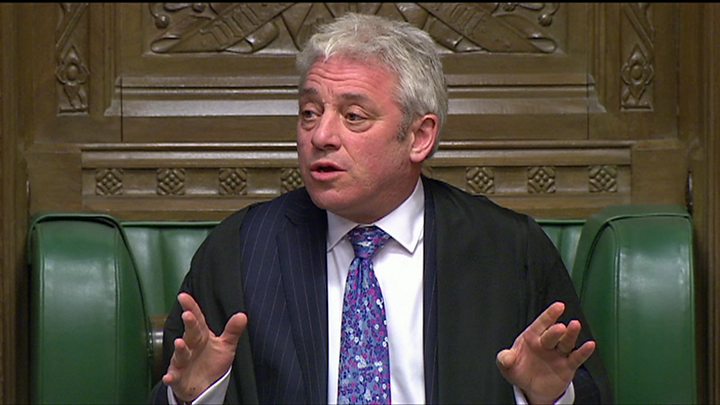Ministers halt discussion of tax transparency bill

Media playback is unsupported on your device
The government has dropped a debate on a bill about financial services ahead of a likely defeat.
A group of MPs had hoped to amend the bill to force greater tax transparency in Britain’s Crown dependencies.
Jersey, Guernsey and the Isle of Man would have to have public registers of beneficial ownership under their plans.
The Treasury said as the amendments were only tabled on Thursday, they will be considered at a later date to ensure “sufficient time for proper debate”.
The islands said the attempted clampdown was “contrary” to established constitutional relationships.
More than 40 MPs had signed the amendment to the Financial Services Bill, requiring the UK to help all overseas territories and Crown dependencies set up a publicly accessible register. It would have obliged them to do so by the end of 2020.
Tory MP Andrew Mitchell and Labour’s Margaret Hodge, who have long campaigned for more transparency over who owns assets in the UK and its dependencies, led the group of MPs.
Dame Margaret said public registers “are the next big step for tackling money laundering and tax evasion” but the government had “taken the outrageous step to pull the bill from today’s business”.
Mr Mitchell told the BBC: “This amendment is an important continuation of the British G8 agenda on transparency and openness to combat money laundering and tax evasion.
“In the face of certain defeat the government have pulled the business for today but the business will return and so will this important amendment”.
In the Commons, he complained to the Speaker that the government intended “arbitrarily to extend” the 2020 deadline “by no less than three years to the end of 2023 in flagrant breach of what was agreed by this House”.
He said that during the original debate, he and Dame Margaret only agreed to extend the deadline until 2020 because of recent hurricanes and storms that damaged many of the overseas territories.
Dame Margaret agreed and accused the government of “a blatant, deliberate and arrogant snub of this Parliament”.
The MPs were supported by Conservative former Brexit Secretary David Davis and Labour’s ex-International Development Secretary Hilary Benn. And the SNP’s Alison Thewliss said the government was “running scared”.
Speaker John Bercow said it was a “rum business” that the bill had “suffered a mysterious and unexplained disappearance”.
“It is at the very least very discourteous to the House of Commons,” he told MPs, adding: “The legislation will presumably have to come back.”
Mr Bercow suggested the decision reflected “a degree of anxiety” and “inexperience” in the government.
A Treasury spokesperson said: “The beneficial ownership amendments were tabled on Thursday, and we want to give them proper and thorough consideration.
“The government will not move the bill today but will reschedule it to ensure that there is sufficient time for proper debate.”
Tax haven retreat underlines government’s weakness in Commons
By the BBC’s parliamentary correspondent Mark D’Arcy
The government’s decision to pull a debate and votes on the Financial Services Bill underlines the weakness of its position in the Commons.
Faced with a threatening backbench uprising led by a wily Conservative former chief whip and a dangerous street-fighting Labour grandee, the government has opted for retreat rather than defeat.
Working across the party divide, Andrew Mitchell and Margaret Hodge have been successfully pushing for a public register of beneficial ownership of companies based in British overseas territories like Anguilla, Bermuda, Gibraltar, the Virgin Islands and the Cayman Islands.
The amendment they had put down to the bill would have reaffirmed that and called for a draft Order in Council requiring the government of any British overseas territory that has not introduced such a register to do so no later than 31 December 2020.
Crucially, the bill – which brings a wedge of EU financial regulation into UK law – would have added the same requirement for Crown dependencies – the Channel Islands and the Isle of Man.
Read more from Mark

